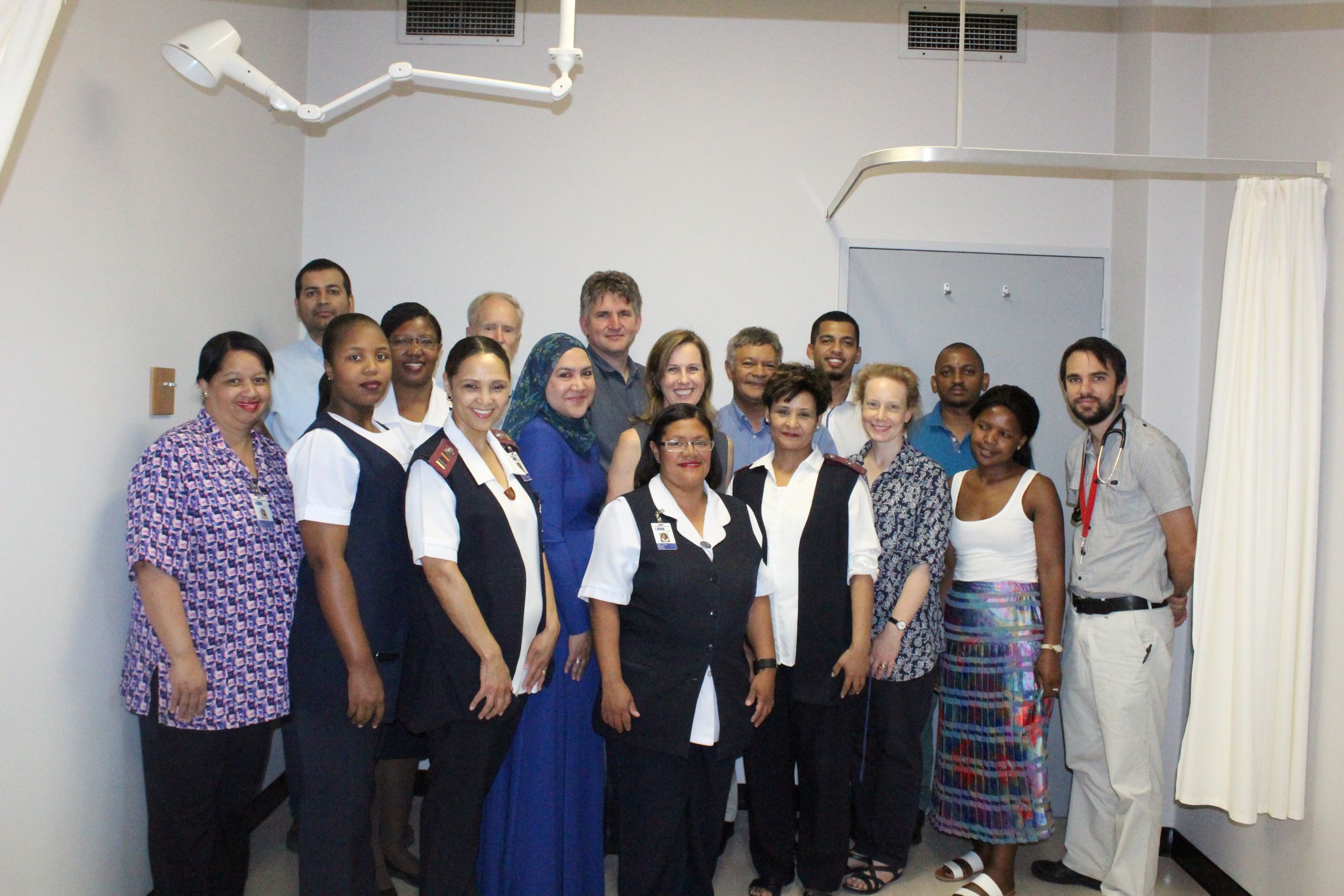
News
Treatment is available for rheumatoid arthritis
March is National Autoimmune Diseases Awareness Month and Tygerberg Hospital in the Western Cape provides patient-centered care for more than 4 000 persons with various forms of arthritis and connective tissue diseases every year in the Division of Rheumatology which forms part of the Department of Medicine. These patients are referred from as nearby as Ravensmead and as far as Upington in the Northern Cape. The most common form of arthritis managed at the clinic is that of rheumatoid arthritis.
What is rheumatoid arthritis?
Rheumatoid arthritis (RA) is a chronic form of arthritis that is auto-immune driven. That implies that the body’s own immune system targets the joints and causes chronic inflammation and damage. Although there is a genetic link with the development of this arthritis, several environmental factors may lead to the activation of this abnormal immune response. Smoking and poor dental hygiene with inflammation of the gums are some of the triggers that had been identified.
Who gets RA and how do I know that I might have RA?
RA affects predominantly females in their late reproductive years (30–40) and may occur in up to 2 in 100 individuals. Yet, older individuals, men and even children may be affected by this condition. RA typically affects smaller joints, especially that of the hands and feet but may also occur in the elbows, knees, and shoulders. The inflammation is recognised by swelling and stiffness in the affected joints, that usually lasts several hours before there is some improvement in joint movement and hand function. It is a chronic condition that will persist for more than 6 weeks, in contrast to other forms of arthritis that may be self-limiting. In some patients, RA may also affect other organ systems including the eyes, lungs, and skin.
Dr Riette du Toit, Head of the Rheumatology Division at the hospital said, “many of our patients go to bed with pain and get up with pain. They have difficulty some days to grip and hold things. Even the simplest task to wash their hair or put on clothes, is a real struggle.”
How is the diagnosis made?
If RA is suspected, the diagnosis will be made by a thorough physical examination by a doctor, while confirmation of the condition will be made with a blood test and x-rays of the joints. The typical blood tests (markers of RA) include rheumatoid factor and anti-CCP (both markers of the auto-immune response driving the condition). These tests may be difficult to interpret and should best be reviewed by a physician or rheumatologist if any uncertainty.
Is there a treatment available?
Yes! RA may not be curable, but it is certainly treatable. Most important is an early, accurate diagnosis followed by the initiation of appropriate treatment referred to as disease modifying anti-rheumatic drugs (DMARDs). Corticosteroids (CS) are also often used in the earlier stages of the disease and provides significant relief of symptoms (as oral tablet or injectable form). The long-term side effects of CS are however significant (including diabetes, hypertension, osteoporosis, cataracts etc.) and their use should therefore be limited to short-term control of symptoms until DMARD therapy is established. The spectrum of DMARDs have expanded significantly over the past two decades with many newer biological DMARDs being developed. These therapies are more expensive than conventional DMARDs with limited access for many patients. Despite this, the cornerstone of treatment remains Methotrexate, a DMARD widely available and accessible. A stepwise approach to controlling the condition and regular follow-up with discussions between patient and treating doctor remain an essential part of the path to improve disease control and prevent joint and organ damage.
Tygerberg Hospital have a dedicated team looking after patients with rheumatological conditions. The team consist of rheumatologists, training doctors in the field of internal medicine and rheumatology, nursing staff and administrative staff. They work closely with allied health professionals including occupational and physiotherapists as well as a dedicated social worker to ensure the best outcome for each individual patient they care for.
What can I do to improve my arthritis?
Taking your medication as prescribed and discussing any concerns or side effects experienced with your treating doctor is essential. Regular follow-up with a review of your response to treatment and monitoring for possible side effects by your doctor, is also important. Following the advice of your occupational therapist and physiotherapist will help you to support and protect your joints from further damage during disease flare-ups. Educate yourself about your condition through reliable sources such as the Arthritis Foundation (https://www.arthritis.org.za) and consider joining a support group where you will be able to share challenges and ideas with others. Valuable information is available about a healthy lifestyle approach including an appropriate diet and exercise programme. An open day is hosted every two years by the Division of Rheumatology at Tygerberg Hospital. Practical aspects about living with arthritis are addressed, providing a valuable learning and interactive opportunity to all patients and family members. Although hampered by Covid-19 for the recent few years, these events will likely resume in 2023 and we are looking forward to seeing you there.
Dr du Toit concluded with the following advice from some of the patients that they treat, “stay positive for your family. Continue to use every opportunity to do the things you love, for example working in the garden on better days. Focus on your dreams, your ambition to continue studying”.


